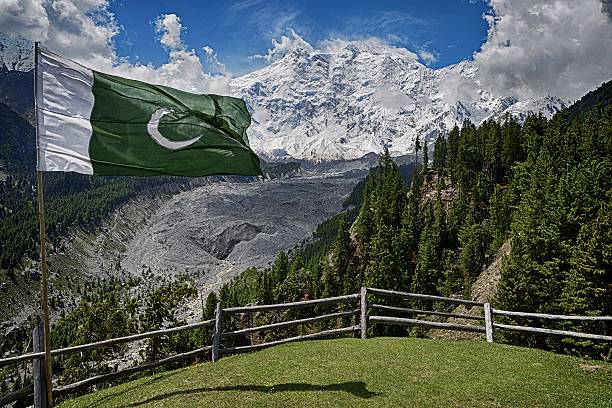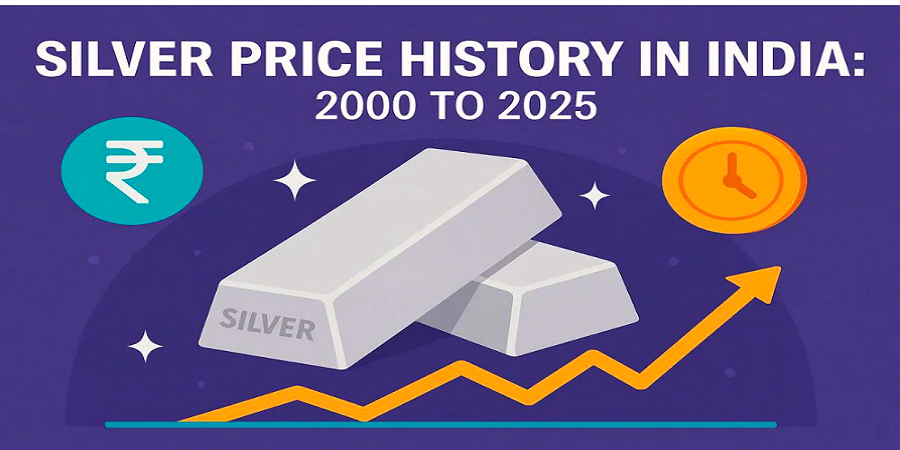Unveiling the Economic Revival: Exploring the Latest News on Pakistan’s Economy
As Pakistan’s economy continues to make waves on the global stage, it’s important to stay updated on the latest news and developments. In this article, we will delve into the economic revival that Pakistan is experiencing and explore what it means for the country’s future.
From infrastructure projects to innovative reforms, Pakistan is taking bold steps to boost its economy and attract foreign investment. With a focus on sectors such as technology, agriculture, and manufacturing, the government is laying the foundation for sustainable growth and development.
Join us as we uncover the strategies and policies that are propelling Pakistan’s economic revival. We will examine the impact of recent initiatives, such as the Special Economic Zones and the CPEC project, and how they are transforming the landscape for businesses and investors.
Stay ahead of the curve by gaining valuable insights into the opportunities and challenges that lie ahead for Pakistan’s economy. Whether you are a business owner, investor, or simply curious about the economic landscape, this article will provide you with the latest news and analysis you need.
Economic indicators and recent trends
Pakistan’s economy has been showing promising signs of growth and revival in recent years. The country’s GDP growth rate has steadily increased, reaching 3.94% in the fiscal year 2020-2021. This upward trend is indicative of a resilient economy that is adapting and thriving despite the challenges posed by the global pandemic.
One of the key factors contributing to Pakistan’s economic revival is the increase in foreign direct investment (FDI). The country has attracted significant investments, particularly in sectors such as manufacturing, technology, and infrastructure. This influx of capital not only creates employment opportunities but also stimulates economic growth and development.
Additionally, the government’s efforts to improve the ease of doing business in Pakistan have yielded positive results. The country has climbed several ranks in the World Bank’s Ease of Doing Business Index, signaling a more business-friendly environment and increased investor confidence.
Government policies and initiatives for economic revival
The Pakistani government has implemented a range of policies and initiatives to stimulate economic growth and attract foreign investment. One notable initiative is the establishment of Special Economic Zones (SEZs) across the country. These SEZs offer attractive incentives and tax breaks to businesses, encouraging them to set up operations and create job opportunities.
Furthermore, the China-Pakistan Economic Corridor (CPEC) project has played a significant role in Pakistan’s economic revival. This ambitious project aims to connect Gwadar Port in southwestern Pakistan to China’s northwestern region, creating a trade route that will boost economic activities in the country. The CPEC project has already led to the development of infrastructure, energy projects, and industrial zones, attracting both local and foreign investments.
Key sectors driving economic growth in Pakistan
Several sectors are driving Pakistan’s economic growth and contributing to its revival. The technology sector, in particular, has witnessed remarkable progress in recent years. The government’s focus on promoting digitalization and innovation has resulted in the emergence of numerous startups and tech companies. These companies are not only creating employment opportunities but also positioning Pakistan as a regional hub for technology and innovation.
The agriculture sector is another key driver of economic growth in Pakistan. The country has vast agricultural resources, and initiatives such as the Prime Minister’s Agriculture Emergency Program have aimed to modernize the sector and improve productivity. By investing in advanced farming techniques, infrastructure development, and research and development, Pakistan is positioning itself to become a major player in the global agricultural market.
Additionally, the manufacturing sector is experiencing a resurgence in Pakistan. The government’s policies to promote industrialization and attract foreign investment have led to the establishment of new manufacturing units and the expansion of existing ones. This growth in manufacturing not only creates job opportunities but also enhances Pakistan’s export potential, boosting the economy further.
Foreign investments and trade partnerships
Foreign direct investment (FDI) has played a crucial role in Pakistan’s economic revival. The country has witnessed a significant increase in FDI inflows, particularly from countries such as China, the United Arab Emirates, and Saudi Arabia. These investments have been directed towards various sectors, including infrastructure, energy, telecommunications, and manufacturing.
Moreover, Pakistan has been actively seeking trade partnerships with countries around the world. The government has signed free trade agreements (FTAs) with several countries, including China, Turkey, and Malaysia, to promote bilateral trade and increase export opportunities. These trade partnerships not only expand Pakistan’s market access but also facilitate technology transfer and knowledge sharing.
Challenges and obstacles to economic growth
While Pakistan’s economic revival is promising, there are still challenges and obstacles that need to be addressed. One of the key challenges is the energy crisis. The country has been grappling with a shortage of electricity and gas, which hampers industrial productivity and economic growth. The government is taking steps to address this issue by investing in energy infrastructure and exploring renewable energy sources.
Another challenge is the issue of corruption, which can deter foreign investors and hinder economic progress. The government has launched an anti-corruption campaign and implemented measures to improve transparency and accountability. However, more efforts are needed to create a corruption-free business environment that fosters trust and attracts investments.
Infrastructure development is also a critical challenge for Pakistan’s economic growth. While the government has made significant investments in infrastructure projects, there is still a need for further development and improvement. Better transportation networks, reliable power supply, and modernized urban infrastructure are essential for attracting investments and facilitating economic activities.
Role of technology and innovation in economic revival
Technology and innovation are playing a pivotal role in Pakistan’s economic revival. The government has recognized the importance of digitalization and has implemented policies to promote the adoption of technology across various sectors. The rise of startups and tech companies has not only created job opportunities but also fostered a culture of innovation and entrepreneurship.
The increased use of digital platforms and e-commerce has also opened up new avenues for businesses and consumers. Online marketplaces and digital payment systems have made it easier for businesses to reach customers and for consumers to access products and services. This digital transformation has the potential to revolutionize the way businesses operate and contribute to economic growth.
Furthermore, the government’s focus on artificial intelligence (AI) and blockchain technology has the potential to drive innovation and efficiency in sectors such as healthcare, agriculture, and finance. By leveraging these emerging technologies, Pakistan can enhance productivity, improve service delivery, and create new business opportunities.
Employment opportunities and job market outlook
Pakistan’s economic revival has created a favorable environment for employment opportunities. The growth in sectors such as technology, manufacturing, and agriculture has led to an increased demand for skilled workers. The government’s focus on vocational training and skill development programs aims to meet this demand by equipping individuals with the necessary skills and knowledge.
Moreover, the establishment of Special Economic Zones (SEZs) has the potential to generate a significant number of jobs. These SEZs attract both local and foreign investments, leading to the establishment of new industries and the expansion of existing ones. This, in turn, creates employment opportunities for both skilled and unskilled workers.
However, it is essential to ensure that the job market remains inclusive and offers opportunities for all segments of society. The government needs to focus on creating an enabling environment for small and medium-sized enterprises (SMEs) and promoting entrepreneurship. By supporting startups and SMEs, Pakistan can unleash the potential of its young population and create sustainable employment opportunities.
Future prospects and predictions for Pakistan’s economy
The future prospects for Pakistan’s economy are promising. The government’s focus on infrastructure development, technology adoption, and foreign investment attraction sets the stage for sustained economic growth. The establishment of Special Economic Zones (SEZs) and the progress of the China-Pakistan Economic Corridor (CPEC) project are expected to generate significant economic activities and create employment opportunities.
Moreover, the country’s strategic location as a gateway to Central Asia and the Middle East positions Pakistan as a regional trade and transit hub. The government’s efforts to improve trade relations and establish free trade agreements (FTAs) with various countries further enhance Pakistan’s export potential and market access.
While challenges such as energy shortages and corruption persist, the government’s commitment to addressing these issues and implementing reforms is a positive sign. By focusing on sustainable development, promoting innovation, and investing in human capital, Pakistan can continue on its path to a stronger and more resilient economy.
Conclusion: The path to a stronger and more resilient economy
Pakistan’s economic revival is gaining momentum, thanks to the government’s policies and initiatives. The increase in foreign direct investment, the development of key sectors, and the focus on technology and innovation are driving economic growth and creating employment opportunities.
However, challenges such as energy shortages, corruption, and infrastructure deficiencies need to be addressed to ensure sustained economic progress. By tackling these obstacles head-on and implementing reforms, Pakistan can pave the way for a stronger and more resilient economy.
As the country embraces digitalization, promotes entrepreneurship, and strengthens its trade partnerships, the future prospects for Pakistan’s economy look promising. By staying updated on the latest news and developments, businesses, investors, and individuals can position themselves to benefit from the country’s economic revival and contribute to its continued growth and prosperity.
*[FDI]: Foreign Direct Investment
*[SEZs]: Special Economic Zones
*[CPEC]: China-Pakistan Economic Corridor
*[GDP]: Gross Domestic Product
*[FTAs]: Free Trade Agreements
*[SMEs]: Small and Medium-Sized Enterprises
*[AI]: Artificial Intelligence










